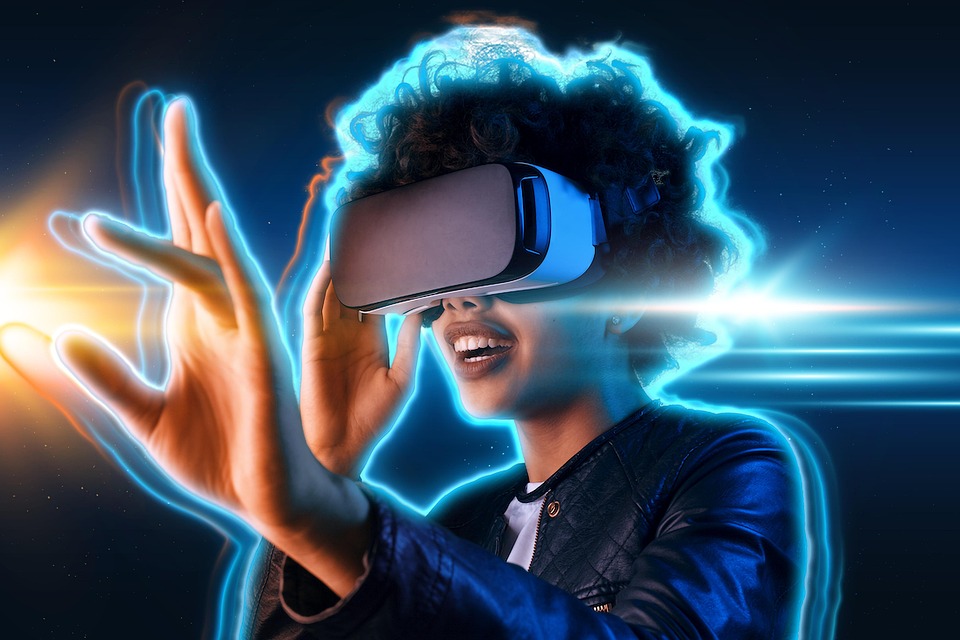The gaming landscape is undergoing a seismic shift with the emergence of the Metaverse—a digital universe where users can interact, socialize, and play in immersive virtual environments. As technology advances and more players venture into this expansive realm, the Metaverse is poised to redefine interactive entertainment. Here’s a closer look at how gaming in the Metaverse is shaping the future of our digital experiences.
What is the Metaverse?
The concept of the Metaverse encompasses a collective virtual space, created by the convergence of virtually enhanced physical reality and physically persistent virtual reality. This space is sustained by the fusion of augmented reality (AR), virtual reality (VR), artificial intelligence (AI), and blockchain technology. In short, the Metaverse is a virtual universe where digital and physical realities coexist, enabling seamless interaction among users through avatars.
The Evolution of Gaming in the Metaverse
1. Immersive Experiences
Traditional gaming experiences are limited by screen size and controller input. In the Metaverse, players can step into fully immersive environments using VR headsets, where they can look around, move, and interact with the digital world as if they were physically present. This presence amplifies the emotional engagement in games, enabling experiences that evoke real-world reactions and interactions.
2. Social Connectivity
One of the hallmark features of the Metaverse is its inherent social nature. Players can connect with others around the globe in real-time, share experiences, or even collaborate on tasks within games. Multiplayer interactions have evolved from simple chats to complex social dynamics, where users can establish friendships, organize events, and build communities around shared interests.
3. User-Generated Content
The Metaverse thrives on creativity. Players are not just consumers of content; they become creators. With tools and platforms that allow game modifications, asset creation, and even entire virtual games, users can contribute to the evolving landscape of the Metaverse. This democratization of content creation fosters a rich tapestry of games and experiences that cater to diverse interests and preferences.
Blockchain and Digital Ownership
Incorporating blockchain technology into the Metaverse adds another layer of depth to gaming. Players can buy, sell, and trade in-game assets as NFTs (Non-Fungible Tokens), granting them true ownership of their virtual possessions. This shift not only enhances the gaming experience but also creates economic opportunities within the Metaverse, where players can monetize their skills, creativity, and time.
Impact on the Gaming Industry
1. Economic Growth
The Metaverse is poised to become a multi-trillion-dollar economy, offering businesses new avenues for revenue through virtual goods, advertising, and experiences. Companies can host virtual events, launch branded merchandise, and collaborate with popular game developers to create branded gaming experiences, unlocking a new front for advertising and engagement.
2. Changing Business Models
Subscription models, freemium designs, and microtransactions are rapidly evolving in the context of the Metaverse. Game developers are now experimenting with new monetization strategies that align with user interests and behaviors, emanating from feedback gathered from immersive social interactions and gameplay.
3. E-Sports Evolution
Esports in the Metaverse provides new arenas for competitive gaming. Virtual stadiums can host large-scale tournaments, bringing fans together in immersive experiences that extend beyond mere viewing. Spectators could interact directly with the events, adding layers of participation and excitement previously unachievable.
Future Challenges
While the prospects of gaming in the Metaverse are enticing, several challenges persist:
- Privacy and Security: As users create digital identities and financial transactions occur, concerns about data privacy and security grow.
- Digital Divide: Ensuring equitable access to the Metaverse is crucial, as disparities in technology and internet availability can exclude some users from these experiences.
- Regulation: As the Metaverse blurs the lines between reality and digital experiences, regulatory frameworks will need to catch up to ensure user safety and fair practices.
Conclusion
Gaming in the Metaverse represents a transformative shift in interactive entertainment. By blending social dynamics, immersive experiences, and unprecedented creative opportunities, the Metaverse is setting the stage for a new era of gaming. As it evolves, stakeholders—from game developers to players—will need to navigate the accompanying challenges and responsibilities. The future of gaming is not just virtual; it’s a shared journey into an expansive, interconnected universe that promises to engage and captivate users like never before.


